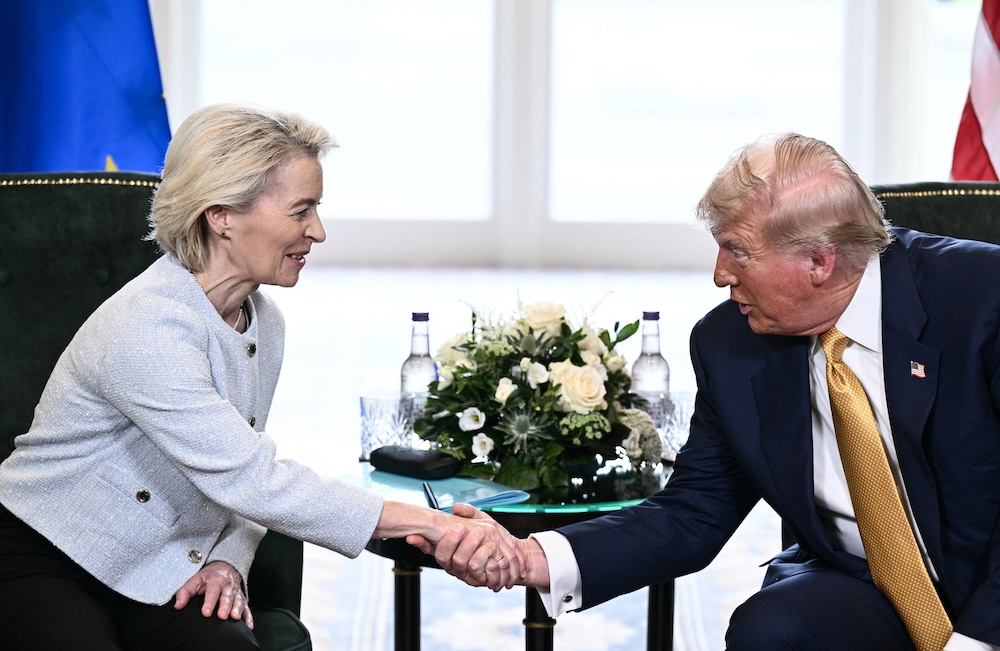EU and US trade deal results are “not ideal”, say Dutch

The European Union and the United States have struck a last-minute trade agreement that averts an escalation in tariffs, but key Dutch sectors still face significant hurdles.
US president Donald Trump and European Commission president Ursula von der Leyen shook hands on the agreement in Scotland on Sunday evening in which the US will impose a 15% import tariff on goods from the European Union, though some products are exempt.
Dutch caretaker prime minister Dick Schoof said on social media that while “no tariffs would have been better,” the deal provides greater clarity for Dutch companies and more stability in the markets. “The next step is to implement the agreement as quickly as possible,” he said.
Junior trade minister Hanneke Boerma said the agreement is “not ideal” and “could still have a big impact on many Dutch and European businesses”. The Dutch government, she said, is urging the European Commission to continue negotiating with the US on lowering tariffs and improving economic cooperation.
The deal leaves in place a 50% tariff on European steel and aluminium, which Trump said would not be reduced and is likely to have a significant impact on Tata Steel in IJmuiden. Von der Leyen, however, told reporters there would be a quota system in place.
Employers’ federation VNO-NCW described the deal as a temporary reprieve. “It ends the uncertainty for now, but a general 15% tariff on all European products remains a painful measure for entrepreneurs,” the lobby group said.
ING economist Bert Colijn told broadcaster NOS the deal brings welcome certainty after weeks of volatility, but warned the outcome was still a step back compared to the situation before April.
“For companies, the agreement offers more predictability,” he said. “We saw trade data fluctuate wildly due to the uncertainty. Deals were cancelled and projects postponed.”
Products exempt from the 15% tariff include aircraft and aircraft parts, chip-making equipment, certain types of agricultural machinery, and selected chemicals. Von der Leyen said after the talks she would work to expand the list of exceptions.
Trade deficit
The Netherlands has had a structural trade deficit with the US for years, according to figures from national statistics agency ANP and oil and gas imports have become more important since Russia invaded Ukraine in 2022.
US crude oil imports now account for 23% of the Dutch total, making the US the most important supplier. The US is also the biggest supplier of medical instruments, apparatus, and pharmaceutical products to the Netherlands.
Germany, France, Ireland, and Italy all have significant trade surpluses with the US, while Belgium, like the Netherlands, has a deficit.
Thank you for donating to DutchNews.nl.
We could not provide the Dutch News service, and keep it free of charge, without the generous support of our readers. Your donations allow us to report on issues you tell us matter, and provide you with a summary of the most important Dutch news each day.
Make a donation